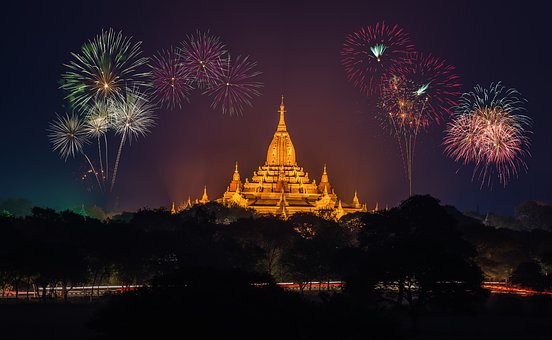A novel that combines the precision of the chronicle and the depth of the essay to generate a story that illustrates how totalitarianism can dive into the strangest sediments of the past in order to give itself a mythical origin that justifies its claims to dominate the present. That may be one of the keys to reading La culpa de lo sagrado (Mansalva), a new work by Carlos Piñeiro Iñíguez, who has already published numerous essays and fiction books.
Rodolfo Burgos was born in Cañuelas in 1905, the son of two Germans who, in an unlikely adventure today, escaped from the hardships of Europe to forge something similar to a promising destiny in that distant South American country. His father, Rainer Burg, had his name hispanicized in the Argentine Civil Registry by the simpler Ramiro Burgos and that fact can be read, for his son, as a sign of the loss of his Germanic bond; a tie that already in his adulthood he will seek to mend with increasing intensity.
That search has precedents; the already mature Ramiro-Rainer volunteered to fight for Germany in the First World War and, upon his return, more than dedicating himself fully to the mill factory that he had set up in the Chacarita neighborhood, he passionately entangled himself in reading of authors who promoted that new nationalism that was macerating in their country of origin. The young Rodolfo absorbed that climate, also nourished by the shared reading with his father of German publications and the press in that language published in Buenos Aires. Of course, they detect that a young agitator, Adolf Hitler, who had only been a corporal in the War (like Rainer), was beginning to stand out on the political chessboard. “My father said that he was the man; the guide we had been waiting for”, recalls Rodolfo.
In this conceptual and geographical journey, the young Burgos immersed himself in Nordic literature and esoteric cults, which, in one way or another, refer to the fact that the Aryan civilization is superior to the others. Thus, the character describes, fascinated, the characteristics of Walhalla, the ideas of the three suns (amber, ice and fire) and the history of the Thule Society, a group of studies from Germanic antiquity that held that the Earth it was hollow.
In 1933, the same year that Hitler won the elections in Germany (which he shortly after converted into a totalitarian state), Rodolfo arrived in that country, where he managed to change his identity to that of Rudolf Burg, to strengthen his relationship between soil and blood and hide that, no matter how much Germanic ancestry he had, he was still an Argentine. In order to progress in the field of anthropology and archaeology, to which he wanted to dedicate himself, under the rule of Otto Rahn, he had to understand and assimilate the racial codes of the new order proposed (and imposed) by the Nazis.
Burg enters the SS and fervently dedicates himself to exploring the most extravagant hypotheses about the origin of the Aryan race. His entry into the Deutscher Ahnenerbe, the Society for the Research and Teaching of German Ancestral Heritage, which will end up being absorbed by the mega-organization led by Heinrich Himmler, will allow him to accentuate that path.
The Ahnenerbe, in its fury to find elements that would make it possible to build a new creed with which to spiritually sustain the Third Reich, will deploy its tentacles throughout Sweden, Finland, France, Turkey, Greece, Iraq, Syria, Spain, Italy and Tibet, in search of of all kinds of archaeological traces and even oral traditions. These tours are intended to reach Lake Titicaca, for the same purpose, to study the ruins of the Tiahuanaco civilization, but the Nazi invasion of Poland aborts those plans. But the expedition to Antarctica is carried out in search of the sleeping Atlanteans.
Rudolf Burg recounts, with the meticulousness of an entomologist, the memory of a historian and the credulity of a fanatic, from the inmates in the bowels of the regime, the collection of archaeological finds in the Wewelsburg castle and the multiplication of new rituals with which that, within the SS, it is intended to invent a new religion. Thus, runes, solstices, esoteric manuscripts and pagan celebrations that seek to cement that spirituality parade. Around 1943, the protagonist embarked with other colleagues from the organization to Buenos Aires, to go to Córdoba there and try to find a Hammer of Thor or a Staff of Wotan, supposedly buried in some foothills of Cerro Uritorco.
His stay on Córdoba soil gave him a big surprise and he returned to Germany. The decline of Nazism will cause the protagonist to decide to escape before Berlin falls into Soviet power and, via Lisbon and again by boat, he ends up in Brazil. An incandescent and brief stay in Buzios challenges his senses and his ideology and his next and last stop is Apóstoles, in Misiones, avoiding the local German community and fearing capture by the Mossad. The missionary jungle will be the final stage of his life. And, contrary to the classic detective story, in this case the detective appears at the end of the play and only provides conjectures rather than clarifications. Actually, none of the actors wants to clarify anything because they all know, or at least suspect, what is hidden behind the tragedy.
A novel with historical solidity, The Guilt of the Sacred also takes us on a fascinating journey where they cross paths from Carl Schmitt to Marcia, a black-skinned head waitress. In this shocking and disturbing text, Carlos Piñeiro Iñíguez, with unforeseen twists and turns that surprise the reader, demonstrates that the alienation generated by totalitarianism crystallizes in the nonsense of an intelligentsia that is first a passive actor and then becomes an accomplice of the great tragedy
You may also like

